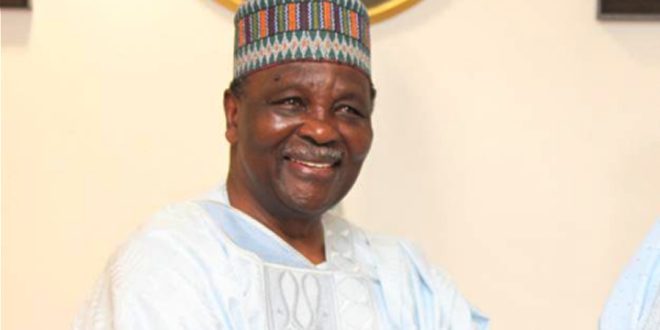Dear General Yakubu Gowon,
I hope this letter finds you in good health and high spirits. As one of Nigeria’s esteemed leaders, your contributions to our nation’s history are both significant and enduring. It is with profound respect for your service that I write to you today, urging a path toward deeper national healing and unity.
Recent reflections, notably from General Ibrahim Badamasi Babangida’s memoir, A Journey in Service, have reignited discussions about the events leading up to the Nigerian Civil War. These accounts suggest that the inability of the federal government, under your leadership, to effectively protect the Igbo populace in Northern Nigeria following the 1966 coup was a pivotal factor that led to the secessionist movement spearheaded by Colonel Chukwuemeka Odumegwu Ojukwu. This perspective offers a nuanced understanding of the complexities of that era and challenges long-held narratives.
The tragic events of 1966, including the coup and subsequent counter-coup, precipitated widespread violence against the Igbo community in the Northern region. The federal government’s perceived inability to curb these atrocities led to a profound erosion of trust among the Igbo people regarding their safety and inclusion within the Nigerian state. This breach of trust was a significant catalyst for the declaration of the Republic of Biafra in May 1967, a move that culminated in a devastating civil war lasting until 1970.
In light of these reflections, it becomes imperative to reassess the portrayal of Colonel Ojukwu. Often depicted as a rebellious figure, emerging narratives suggest that his actions were driven by a genuine concern for the safety and well-being of his people amidst existential threats. This reevaluation not only challenges previous perceptions but also underscores the necessity of understanding the motivations and fears that influenced the decisions of that time.
The Aburi Accord of January 1967 stands as a poignant example of a missed opportunity for peace. The agreement, which aimed to decentralize power and grant greater autonomy to Nigeria’s regions, could have addressed the grievances of the Eastern Region. However, its subsequent repudiation exacerbated tensions, leading to the escalation of hostilities. Reflecting upon this, one might consider how honoring such agreements could have altered the course of our nation’s history.
Your recent public acknowledgment of initiating the war has reopened dialogues about this critical period. The Indigenous People of Biafra (IPOB) and other groups have responded, highlighting the deep-seated grievances that persist decades after the conflict. This moment presents a unique opportunity for you to engage in a comprehensive and sincere dialogue about the decisions made during your tenure.
Accountability and reconciliation are essential components of national healing. While previous gestures, such as your apology in Asaba in 2002 for the mass killings during the war, are commendable, they must be accompanied by continuous efforts to confront and address past injustices. A more detailed acknowledgment of the federal government’s shortcomings in protecting the Igbo populace and adhering to peace agreements would serve as a significant milestone in Nigeria’s journey toward genuine reconciliation.
The legacy of the Nigerian Civil War continues to influence our socio-political landscape. Ethnic tensions, mutual suspicions, and unresolved grievances trace their roots to that conflict. Addressing these issues requires a multifaceted approach, including historical acknowledgment, restorative justice, and the promotion of inclusive governance. Your unique insights and experiences position you to guide this process effectively.
Moreover, the narratives surrounding the war have often been one-sided, leading to a skewed understanding of events. Your comprehensive account could provide a more balanced perspective, enriching the historical discourse and educating younger generations about the complexities of Nigeria’s past. Such an endeavor would honor the memories of those who suffered and serve as a cautionary tale against the perils of ethnic discord and political miscalculations.
Recognizing the courage it takes for a leader to admit past mistakes, your acknowledgment of your role in the war indicates a readiness to confront history. This bravery should be met with a collective willingness to engage in open dialogue, fostering an environment where truth and reconciliation can thrive.
Furthermore, reflecting on the international community’s role during the civil war, including the support and opposition from various nations, could offer valuable lessons on the importance of diplomatic engagement and the consequences of foreign interventions in internal conflicts.
As Nigeria continues to grapple with challenges of national unity, security, and development, learning from past mistakes becomes imperative. Your detailed confession and reflection could serve as a foundation for policy formulations aimed at preventing a recurrence of such tragic episodes. It would also reinforce the principle that leadership entails accountability, not just to contemporaries but to posterity.
In conclusion, your tenure during one of Nigeria’s most turbulent periods places upon you a unique responsibility. Embracing this responsibility through a sincere and comprehensive confession about the failures and decisions of your administration would not only aid in national healing but also cement your legacy as a leader committed to truth and reconciliation. The time for such a pivotal contribution to Nigeria’s history is now.
With utmost respect,
Elder Abraham Amah
Public affairs Analyst & commentator
 National Telescope national telescope newspaper
National Telescope national telescope newspaper



